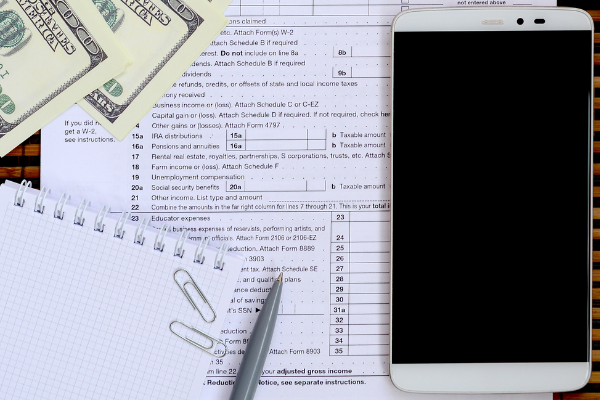Qualifying For A Mortgage Credit Certificate
 Purchasing a house can be expensive, but there are measures in place to make it easier, particularly for people buying a home for the first time. One option is a mortgage credit certificate. What is the certificate, and how does it work?
Purchasing a house can be expensive, but there are measures in place to make it easier, particularly for people buying a home for the first time. One option is a mortgage credit certificate. What is the certificate, and how does it work?
A Mortgage Certificate Is A Tax Credit
A mortgage credit certificate, usually shortened to MCC, is a credit issued to first-time homebuyers by the local or state government. This certificate allows first-time homeowners to claim a federal tax credit for mortgage interest paid on the loan, with a limit of up to $2,000. When someone takes out a mortgage, the majority of the payments go toward interest. This credit certificate allows homeowners to recover some of the interest paid in the form of a tax credit.
Who Qualifies For This Credit?
Not every homeowner will qualify for this certificate. Usually, this is a certificate reserved for low-income people purchasing a home for the first time. Or, these credits are limited to people who purchase a house in a certain area. Usually, these programs are run by the states. Every state has a slightly different income limit for people purchasing a home. Everyone needs to check the local rules and regulations set by their states.
Is The Certificate Different From A Tax Deduction?
Yes, the mortgage credit certificate is different from a tax deduction. A tax credit is directly applied to the amount of money someone owes in taxes. In contrast, a tax deduction is a deduction from someone’s gross taxable income. A tax credit is better for tax purposes than a tax deduction. It is possible for someone to be awarded a mortgage credit certificate and deduct the interest paid on the mortgage from their taxes. Anyone who has questions about how deductions and credits work should work with a tax professional.
Do Not Leave Money On The Table
It is true that purchasing a house for the first time can be a challenge; however, there are financial measures in place to make this process easier. Anyone who is buying a home for the first time should take a look at the state qualifications for the mortgage credit certificate program. This could help people save money on their taxes.
 There are many people who are interested in purchasing a home for the first time. Even though many first-time homeowners are interested in the sticker price of a home, it is just as important to consider credit scores. Anyone who requires financing to purchase a home will have to go through a credit check. What credit score is considered high enough for a home loan? What do people have to do if they want to increase their credit scores?
There are many people who are interested in purchasing a home for the first time. Even though many first-time homeowners are interested in the sticker price of a home, it is just as important to consider credit scores. Anyone who requires financing to purchase a home will have to go through a credit check. What credit score is considered high enough for a home loan? What do people have to do if they want to increase their credit scores? There are many people who are thinking about refinancing their homes. For example, some people may be interested in reducing their monthly payments, while other people may be interested in tapping into the value of the home to fund a home improvement project. What is the relationship between property values and refinancing? There are several important points to keep in mind.
There are many people who are thinking about refinancing their homes. For example, some people may be interested in reducing their monthly payments, while other people may be interested in tapping into the value of the home to fund a home improvement project. What is the relationship between property values and refinancing? There are several important points to keep in mind.